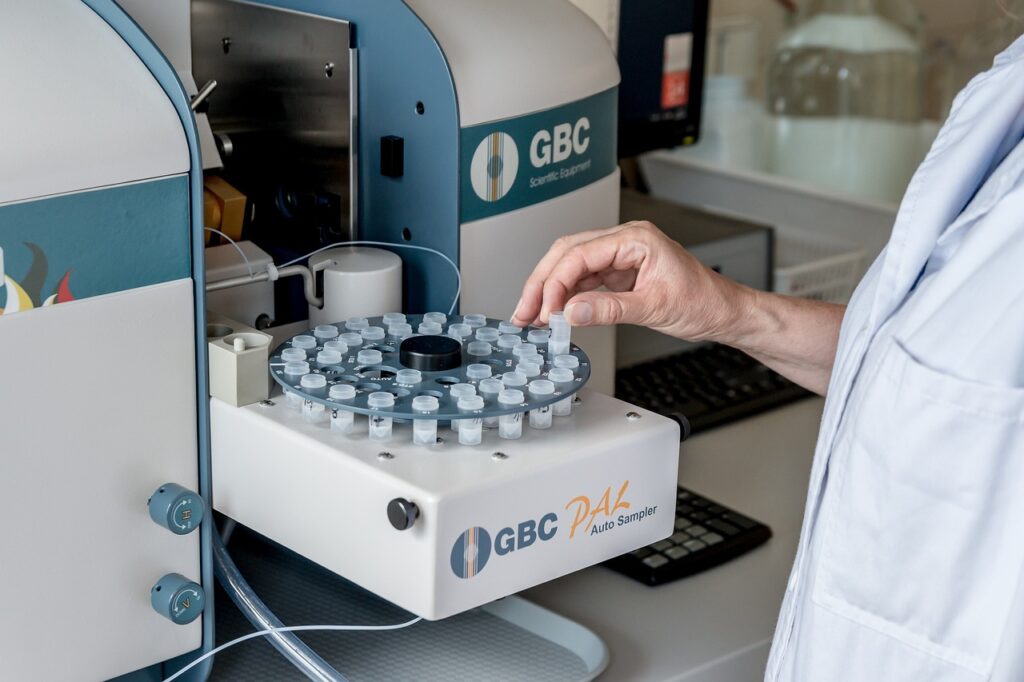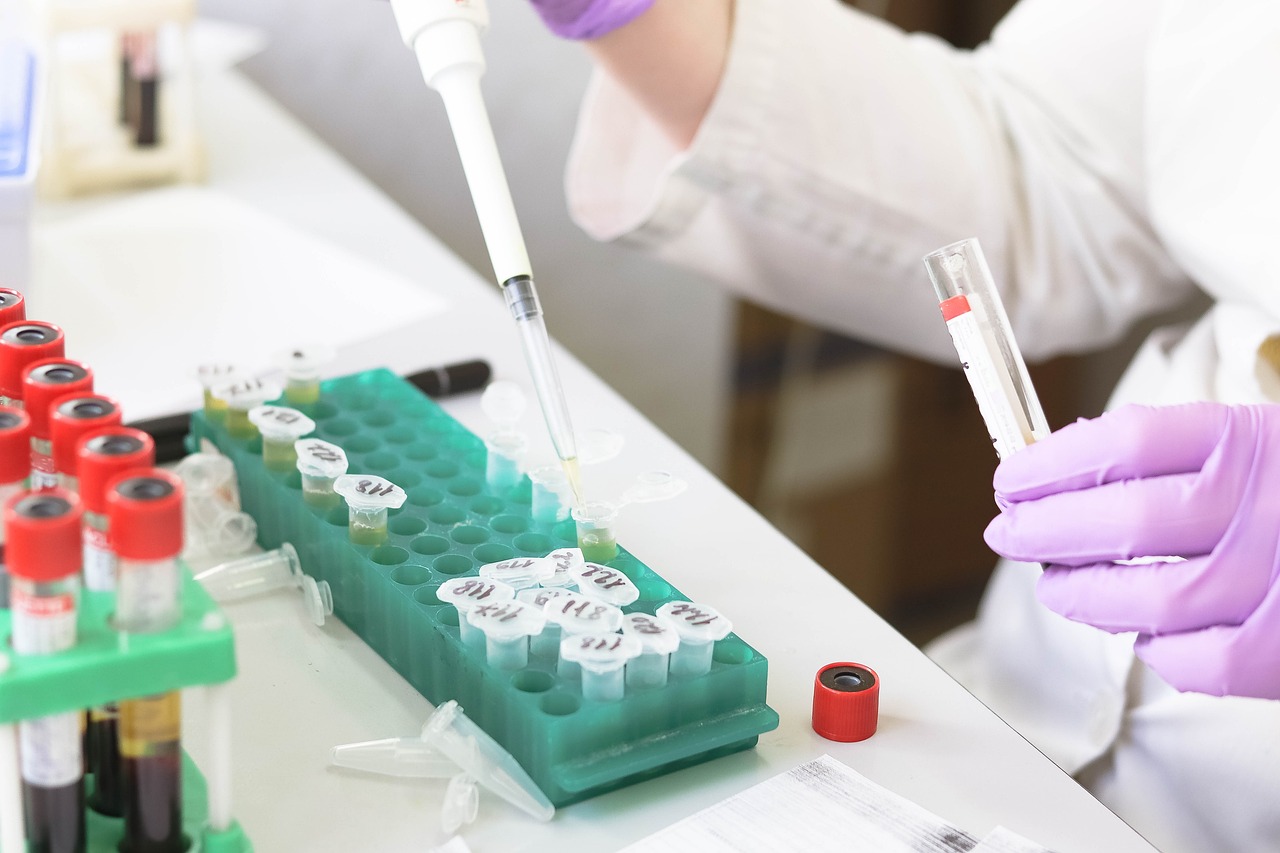One essential resource that has a direct effect on both the environment and human health is water. Whether it’s for drinking , cooking, or industrial use, clean water is non- negotiable. But in a rapidly growing city like Hyderabad, water contamination is a serious issue which is expanding quickly. That’s where many water testing labs step in - offering extensive services to analyzing and guaranteeing safe water for homes and businesses. Because clean water is not a luxury, but a necessity.

Importance of Water Testing
Water testing is crucial for numerous reasons:
- Health Safety: Contaminated water can cause various waterborne diseases such as cholera, typhoid, and dysentery.
- Industrial Use: Many industries rely on water with specific chemical properties; water testing ensures compliance with standards.
- Environmental Protection: Water pollution affects ecosystems; regular testing helps monitor and control pollutants.
- Regulatory Compliance: Many government regulations mandate water quality standards, making periodic testing essential.
- Household Consumption: Ensuring safe drinking water at home protects families from harmful contaminants.
- Agricultural Safety: Farmers depend on water testing to ensure soil and crop safety, preventing toxic buildup in food production.
- Construction and Infrastructure: Proper water analysis ensures that construction projects use water free from corrosive elements, prolonging infrastructure lifespan.
- Commercial Food and Beverage Industry: Restaurants, food processing units, and beverage companies need water testing to maintain hygiene and meet safety standards.
Types of Water Testing
Water testing labs in Hyderabad's provide a range of analyses to assess the quality of the water. Typical tests include the following:
1. Physical Testing
- Color
- Odor
- Turbidity
- Temperature
- Suspended solids
2. Chemical Testing
- pH levels
- Hardness
- Chloride content
- Heavy metals (lead, mercury, arsenic)
- Nitrates and sulfates
- Fluoride levels
- Total dissolved solids (TDS)
- Ammonia levels
- Pesticide residues
3. Biological Testing
- Bacteria (E. coli, coliforms)
- Viruses
- Algae and fungi presence
- Protozoa and parasites
4. Toxicity Testing
- Industrial effluents
- Pesticide residues
- Radioactive substances
- Pharmaceutical contaminants
- Microplastic analysis
Best Water Testing Labs in Hyderabad
Several reputable Water Testing Labs in Hyderabad offer water testing services. Some of the well-known ones include:
1. National Accreditation Board for Testing and Calibration Laboratories (NABL) Certified Labs
These labs produce reliable test reports and adhere to stringent quality standards. The following are a few noteworthy Hyderabad labs with NABL certification:
- Spectro Analytical Labs
- Hyderabad Test House
- Vimta Labs
- Envirotech Laboratories
2. Government Water Testing Labs
Reliable water testing is available at reasonable prices at government-run facilities. Among the examples are:
- Telangana State Pollution Control Board (TSPCB) Laboratory
- Central Research Institute for Dryland Agriculture (CRIDA) Water Testing Facility
- Institute of Preventive Medicine (IPM) Water Testing Labs in Hyderabad
- Municipal Corporation Water Quality Testing Centers
3. Private and Independent Labs
Numerous private labs provide thorough reports and sample collection at the client's door. Several well-liked choices are:
- Envirocare Labs
- Aqua Analytical Labs
- Global Water Testing Services
- AquaCheck Laboratories
- HydroPure Testing Solutions
How to Choose the Right Water Testing Lab
Take into account the following elements when choosing a water testing lab in Hyderabad:
- Accreditation: Ensure the lab is NABL-certified for credible results.
- Scope of Testing: Check if the lab offers the required tests (chemical, biological, physical, etc.).
- Turnaround Time: Choose a lab that provides timely reports.
- Sample Collection Service: Some labs offer doorstep collection for convenience.
- Cost: Compare pricing among different labs to find the best service within budget.
- Customer Reviews: Check online reviews and testimonials to verify lab credibility.
- Additional Services: Some labs provide consultancy on water treatment solutions, which can be beneficial for industrial and commercial clients.
- Technology Used: Advanced labs with modern testing equipment can offer more precise and detailed reports.
Steps to Get Your Water Tested
- Identify the Test Required: Determine whether you need drinking water, industrial water, or sewage water testing.
- Collect a Sample: Follow the lab’s guidelines for proper sample collection.
- Submit the Sample: Drop off the sample at the lab or request a doorstep collection.
- Wait for Results: Labs typically take 2-5 days to analyze the sample and provide a report.
- Interpret Results: Compare the results with standard water quality guidelines.
- Seek Expert Advice: If the results indicate contamination, consult experts for suitable water treatment methods.
- Follow-Up Testing: Regular testing helps ensure ongoing water quality maintenance.
Government Regulations on Water Quality
All drinking and industrial water must cling to the water quality standards set by the Central Pollution Control Board (CPCB) and the Bureau of Indian Standards (BIS). These guidelines govern:
- Permissible limits for various chemical components
- Bacteriological quality requirements
- Treatment guidelines for wastewater disposal
- Water quality norms for packaged drinking water manufacturers
- Guidelines for groundwater and surface water testing
Advanced Technologies in Water Testing
Many contemporary labs now analyze water using cutting-edge technologies, such as:
- ICP-MS (Inductively Coupled Plasma Mass Spectrometry) for detecting trace metals.
- Chromatography techniques for identifying organic pollutants.
- Real-time water quality monitoring systems for continuous analysis.
- AI and IoT-based smart sensors for remote water testing and quality assessment.
- Spectrophotometry for analyzing chemical compositions in water.
- DNA-based testing methods for detecting microbial contamination with higher accuracy.
Tips for Ensuring Safe Water at Home
Apart from professional water testing, you can take simple steps to maintain water quality at home:
- Boil Water: Boiling kills harmful bacteria and viruses.
- Use Water Purifiers: RO (Reverse Osmosis) and UV purifiers help eliminate impurities.
- Regular Maintenance: Clean water storage tanks periodically to prevent contamination.
- Check Plumbing System: Old or corroded pipes can introduce contaminants into your water supply.
- Use Water Testing Kits: Home water testing kits can provide preliminary results before professional lab testing.
Conclusion
Water testing in Hyderabad's facilities are essential to guarantee the purity and safety of water used for industrial, commercial, and residential applications. Frequent water testing helps avoid health risks and preserves environmental balance, whether for home use or regulatory compliance. Selecting a trustworthy lab guarantees precise findings and comfort. Contact a qualified water testing lab in Hyderabad right now if you have any concerns regarding the quality of your water! Water testing is an investment in sustainability and health. It is imperative to take proactive steps to provide safe and clean water for everyone as urbanization increases. A healthier future for Hyderabad and its citizens is ensured by routine testing in conjunction with appropriate filtration and treatment.


